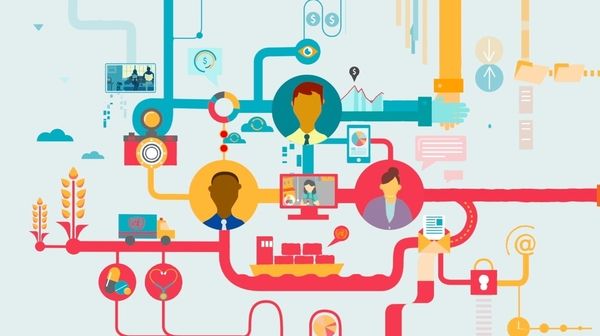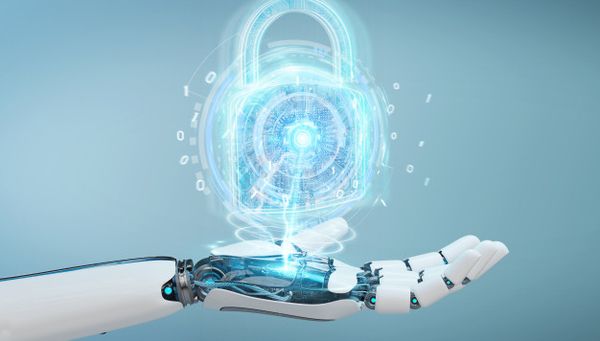
The Internet of Imaginative Things How AI Makes IoT Effective
September 10, 2019
World’s Largest Hard Drive Will Be the New Data Center Standard
September 12, 2019Adopt OOPS before your providers send you an oops. OOPS being Ownership Over Privacy Shenanigans.
This is the era when a Bot can do almost everything a human can. There is no need for a human entity to keep watch and steal or exploit the data of every individual anymore. Some botnets do that for them, devices that are pre-programmed and “well versed” with their agenda of hijacking the devices of many individuals at the same time with malicious intent. This is all possible due to the advanced technology.
Does Better Technology Do More Harm Than Good?
This is the reality because:
- Better tech for us = better tech for hackers as well
- Increased accessibility = more dependency = increased data vulnerability
- More data online = more data predators online
- Not owning our data = providers sending out and oops in case of a data breach
AI is everywhere, from our phones to our homes. The more information it analyses, the more it “learns,” the more accurate the output of the tasks will be.
Artificial intelligence, like other technology, was created to make life easier by automating the tasks that were predominantly under the domain of handy human work. But every boon has a bane and so does AI.
AI development is somewhat responsible for the existence of “machine intelligence” and software intelligence. Thus, the right software can be used to crack millions of passwords in seconds.
Also, with advanced technology any privacy protection setting that the platforms may have for Information security can be breached and this is mainly because of-
- The disconnected ideas of information privacy adopted by most platforms.
- The lack of ownership over our data that we input or store on the platform.
To utilize online portals, we input data about us and create an account. This data we input is submitted to the servers of the platform providers. This data is read by the bots in the mainframe and then stored in their database. The stored information is analyzed, again, by mainly intelligent bots under the guidelines of the owners of the platforms. Some of the providers then further “cleanse” the data as per their needs and sell it abiding by the “guidelines” that we agreed to before we sign up for such spaces.

Credit: verdantis.com
We don’t mind the sharing of data like the things we like and certain things that we search for because, in turn, we get a “better” and “optimized” user-experience along with “customized” ads. The companies pay millions if not billions to obtain the user activity data from the providers or be displayed in the “customized” ads.
So, a small input by us is capable of earning a lump-sum amount of money for the platform as data brokering is one of the most significant contributors to the revenue of an online platform provider.
AI is used to not only enhance the capabilities of a machine but also to perform the task of protection. But the same locksmith that makes a lock can produce keys for a flawless breach.
The same technology used to safeguard our data can be programmed to sabotage everything. Intelligent bots are used for remote surveillance over the World Wide Web. Certain entities are surveilling us and all our day-to-day activities through our “private” devices 24/7, and we are unaware. All this is done to “protect” us and to eradicate the existence of unsecured platforms as well as entities with malicious intents.
Bots over the internet pry over everything. Such bots can also be reprogrammed and be used for infiltrating the firewall and steal or exploit our data.
We need to worry about this because platforms used for shopping, social networking, business communication or platforms that require a paid subscription for their services have our-
- Bank details
- Private conversations
- Sensitive information
- Location details
- Addresses and so on
All such data is enough to blackmail us, ruin our individual lives, steal our money, and worse even steal our very identities. All is possible when hackers or greed filled entities use the boon of modernization made to protect us against us to ensure the success of.
Why Data Ownership over Data Privacy?

Artificial intelligence is growing fast, so fast that thanks to AI, the world is now witnessed to the first robot citizens that have “emotions” and cognitive skills.
This might be a cause for celebration for the developers, but this is a calling for better measures of self-preservation. How long do we think that privacy will help us? Our data is in shared domains, there are billions more like us there, and that is why that domain becomes a target for frequent attacks.
Insider attacks are the sixth highest in number and yet we are here, blissfully ignorant. We see the advancement in technology, and we know the vulnerability that our data is subjected to. The privacy policy only stops the “raw” data from being utilized without our prior permission by the provider, but it does prevent other criminal entities from selling it. Anyone who obtained that data through unethical means or without the agreement on the terms of usage can sell it.
Our data is stolen, and accounts are hijacked because as much as we love the queen, Beyonce, girls don’t run the world and nor do boys but money does. Nobody does anything without a purpose, and in the advanced yet materialistic world, money is everything.
All philosophy aside, crimes are mostly carried out for money. When we utilize data privacy, we lock away our data which becomes a target and is vulnerable, but when we have ownership, it is copyright over our data, and so nobody but us can even view the data without specific permissions.
It not only grants us means for monetary gain but the full support of the law when it comes to the privacy and sharing of our data. With platforms like Houm, that provide us with data ownership, we might have to struggle a bit and pay for it, but that turns the end game into a reality that is sweeter than fiction.
With data ownership, we not only upload stronger protection over our data but a kind of insurance in case someone does violate it.
Creating situations everywhere where trespassers can be prosecuted by the law.
